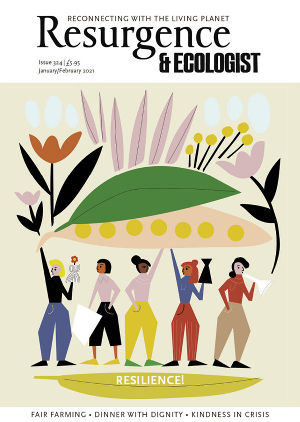I hope I never have to sit an exam on climate change, but if I did, Hope in Hell would be the perfect revision text. Jonathon Porritt has spent decades at the centre of the climate movement, working alongside businesses, activists and politicians, and he’s fluent in the debates around how to reduce greenhouse-gas emissions and salvage what’s left of the future. He trots effortlessly through his subject matter; the book has 21 short, sharp chapters, covering everything from science to energy to politics.
Whether this rundown is interesting will depend to what extent the reader believes Porritt’s assertion that this information is “absolutely not ‘common knowledge’”. The organising principle of the book is this notion of hope – that there is time to prevent the worst impacts of climate change. Among the most engaging discussions is the interrogation of what it means to be a climate optimist and how to avoid fostering a dangerous sense of complacency.
After that point, however, Hope in Hell fails to offer much that is new or surprising. Porritt’s bleak account of climate science left me desperate for a compelling reason to find hope, but the ensuing chapters failed to buoy my spirits. While it’s wonderful to be reminded that renewable energy is becoming cheaper and that scientists are developing lab-grown meat, these explorations felt like an extension of the innumerable perky reports released over the past decade while the world has remained invariably on track for fatal climate disruption. The treatment of each subject, while authoritative, is too brief to offer any satisfying insights.
After showing that solutions are available, Porritt gets to the heart of the matter: the explosion of civil disobedience, including Extinction Rebellion and the school strikes sparked by Greta Thunberg. “I see this commitment to the radical transformation of today’s economy as the only source of authentic hope for addressing today’s Climate Emergency,” he writes.
There is a fascinating chapter comparing today’s climate movement to historical activism, including the Suffragettes and Abolitionism – it is this kind of passion, Porritt argues, that might finally have a real impact. Even so, this reason for hope is couched within caveats, including the rise of political populism and the corrupting influence of dark money. Again there is little depth to the discussion, and beyond historical parallels the analysis is too light to convincingly persuade that today’s climate movement will succeed where in the past it has failed.
Perhaps that is the difficulty in writing about climate breakdown: every fact is well trodden. The science is well established, the technology well developed. What we need goes beyond that: a new story, a dramatic shift in political will. For a reminder of the state of this knowledge, Hope in Hell provides a useful digest: it is wide-ranging, precisely written, and up to date. However, it is unlikely to radically change your perspective.
When so many people are thinking creatively about how to mourn, celebrate and preserve the planet, this cautious tone can be frustrating. Porritt approaches the topic in the manner of an academic rather than a storyteller; some of the most inspiring passages emerge when he quotes other writers. (I particularly enjoyed Rebecca Solnit’s analogy comparing revolutions to fruiting fungi.)
This is a problem only because he clearly recognises the limitations of this approach. “It’s crucial that we give ourselves time to imagine what that ‘better world’ might look like, and to picture ourselves living in that world, so that we can become better storytellers as we confront the Climate Emergency,” he writes. A convincing path forward for civil disobedience is the story that’s lacking here. It may be the best reason we have for hope, yet it feels like a footnote rather than the theme of the book.







